第34章 X.(3)
"Yes; but he didn't know who I was when we met here.""Well, upon my word, Boyne, I think you might have told us before," said his mother, in not very definite vexation. "Go along, now!"Boyne stood talking to his mother, with his hands, which he had not grown to, largely planted on the jambs of her state-room door. She was keeping her berth, not so much because she was sea-sick as because it was the safest place in the unsteady ship to be in. "Do you want me to send Ellen to you!""I will attend to Ellen, Boyne," his mother snubbed him. "How is Lottie?""I can't tell whether she's sick or not. I went to see about her and she motioned me away, and fairly screamed when I told her she ought to keep out in the air. Well, I must be going up again myself, or--"Before lunch, Boyne had experienced the alternative which he did not express, although his theory and practice of keeping in the open air ought to have rendered him immune. Breckon saw his shock of hair, and his large eyes, like Ellen's in their present gloom, looking out of it on the pillow of the upper berth, when he went to their room to freshen himself for the luncheon, and found Boyne averse even to serious conversation: He went to lunch without him. None of the Kentons were at table, and he had made up his mind to lunch alone when Ellen appeared, and came wavering down the aisle to the table. He stood up to help her, but seeing how securely she stayed herself from chair to chair he sank down again.
"Poppy is sick, too, now," she replied, as if to account for being alone.
"And you're none the worse for your little promenade?" The steward came to Breckon's left shoulder with a dish, and after an effort to serve himself from it he said, with a slight gasp, "The other side, please."Ellen looked at him, but did not speak, and he made haste to say: "The doctor goes so far as to admit that its half a gale. I don't know just what measure the first officer would have for it. But I congratulate you on a very typical little storm, Miss Kenton; perfectly safe, but very decided. A great many people cross the Atlantic without anything half as satisfactory. There is either too much or too little of this sort of thing." He went on talking about the weather, and had got such a distance from the point of beginning that he had cause to repent being brought back to it when she asked:
"Did the doctor think, you were hurt?"
"Well, perhaps I ought to be more ashamed than I am," said Breckon.
"But I thought I had better make sure. And it's only a bruise--""Won't you let ME help you!" she asked, as another dish intervened at his right. "I hurt you."Breckon laughed at her solemn face and voice. "If you'll exonerate yourself first," he answered: "I couldn't touch a morsel that conveyed confession of the least culpability on your part. Do you consent?
Otherwise, I pass this dish. And really I want some!""Well," she sadly consented, and he allowed her to serve his plate.
"More yet, please," he said. "A lot!"
"Is that enough?"
"Well, for the first helping. And don't offer to cut it up for me! My proud spirit draws the line at cutting up. Besides, a fork will do the work with goulash.""Is that what it is?" she asked, but not apparently because she cared to know.
"Unless you prefer to naturalize it as stew. It seems to have come in with the Hungarian bands. I suppose you have them in--""Tuskingum? No, it is too small. But I heard them at a restaurant in New York where my brother took us.""In the spirit of scientific investigation? It's strange how a common principle seems to pervade both the Hungarian music and cooking--the same wandering airs and flavors--wild, vague, lawless harmonies in both. Did you notice it?"Ellen shook her head. The look of gloom which seemed to Breckon habitual in it came back into her face, and he had a fantastic temptation to see how far he could go with her sad consciousness before she should be aware that he was experimenting upon it. He put this temptation from him, and was in the enjoyment of a comfortable self-righteousness when it returned in twofold power upon him with the coming of some cutlets which capriciously varied the repast.
"Ah, now, Miss Kenton, if you were to take pity on my helplessness!""Why, certainly!" She possessed herself of his plate, and began to cut up the meat for him. "Am I making the bites too small?" she asked, with an upward glance at him.
"Well, I don't know. Should you think so?" he returned, with a smile that out-measured the morsels on the plate before her.
She met his laughing eyes with eyes that questioned his honesty, at first sadly, and then indignantly. She dropped the knife and fork upon the plate and rose.
"Oh, Miss Kenton!" he penitently entreated.
But she was down the slanting aisle and out of the reeling door before he could decide what to do.